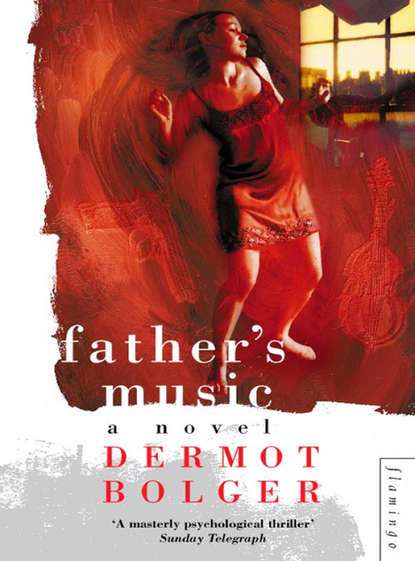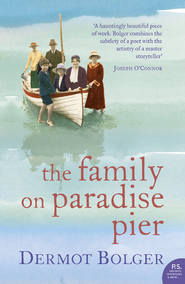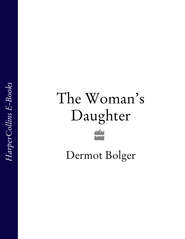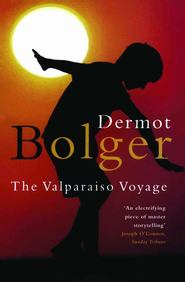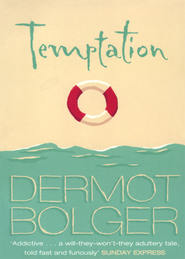По всем вопросам обращайтесь на: info@litportal.ru
(©) 2003-2024.
✖
Father’s Music
Автор
Год написания книги
2018
Настройки чтения
Размер шрифта
Высота строк
Поля
‘She was the most deadly of the lot.’
I didn’t want a litany. I felt cold and started shivering. Tomorrow I’d wake hungover, trying to convince myself this had never happened. But I’d know that physically it had felt truly good.
‘It didn’t work, you know,’ he said.
‘What?’
‘Facing away from me. For all your attempts to hide it, I could still tell both times you came.’
I felt vulnerable and wanted to be out of that room. His fingers retreated from my neck to glide slowly along my backbone. When he lifted them away my inability to track their movements made them more menacing. Luke wasn’t the first Irishman to touch me. I had fooled myself into thinking I could banish such memories.
‘I suppose you’re going to say you love me next,’ I said.
‘No,’ he replied. ‘I haven’t room to love anyone else. But I loved fucking you.’ Somehow the inflection he invested in the word stripped it of vulgarity. ‘Next Sunday night I can make sure we get this same room. You enjoyed it here, don’t say you didn’t. Think about it, eh?’
‘So much for champagne and flowers,’ I mocked.
‘I haven’t time for that stuff any more and, be honest, you don’t want it either. There’s a fight brewing out there. I’ve got to get down. Next Sunday night, around half past nine.’
‘Bring a copy of Penthouse and a hanky,’ I said. ‘I’d hate to have you going home frustrated.’
‘Half nine,’ Luke repeated. ‘Ten at the latest. I warn you, I won’t wait all night.’
I stood up. My knickers lay a few feet away. I didn’t want to put them on with him watching. But when I bent to pick them up he covered them with his foot.
‘Pirate’s loot,’ he said. ‘Be a good girl and you’ll get them back next week.’
I didn’t argue or tell him what to do with those panties alone by himself here next Sunday and every Sunday until he went blind. I held my tongue, sobering up rapidly. I had broken every rule I ever taught myself for protection against this self-destructive urge. I simply wanted to get safely out that door. Only when I had it open did I glance back. Luke was slumped on that chair with his trousers still bunched around his ankles. Something about him, in the light from the hallway, suggested the sight which must greet night porters who enter hotel rooms to find that a murder has occurred. Then he turned his head.
‘I couldn’t stop looking at you,’ he said, as if amazed to find himself there. ‘You don’t know how desperately I want you to come.’
I ran downstairs, past reception and only stopped when I found myself among the crowds from the Irish Centre. Luke was right, an argument was developing among his family. If his wife saw me leave the hotel she gave no sign, but one or two heads turned when I passed. There was no sign of Garth. The black haired girl stared at me coldly and almost defiantly now. I felt naked as if she had understood Luke’s game all along. She could even be his daughter. I pushed my way through the crowd, sensing her eyes still watching me. I felt a chill beneath my skirt as I ran, watching for danger from the shadows. I didn’t care now what cranks might be on the train. I was just thankful to have got safely away and to know that I would never see Luke again.
FOUR (#ulink_660617ca-7299-5c3b-9927-ca4e2490770a)
IT IS JUST BEFORE my sixth birthday. I remember this because my thoughts are about presents as I rush from school among a flock of children. Now, walking with my mother, I’m anxious to get home to where Gran will have lunch ready and ensure that I finish two glasses of milk before being allowed to watch the children’s programmes.
But my mother takes a meandering route as if prolonging our journey. She says nothing to draw me into her brooding world, even when I ask for a story. We reach a footbridge across railway tracks and climb up to look across at wintry back gardens where fluorescent lights shine in kitchens. I tug at her hand, but she waits there. Then the train comes, all noise and slipstream and unwashed roofs of carriages. I’m frightened. I know the train cannot hurt us, thundering beneath our feet. It’s my mother I am scared of or scared for. It’s the way she watches the train. She wants to leave. That much I understand. She wants to leave Harrow and Gran and Grandad Pete and maybe she wants to leave me.
Or worse, perhaps she wants to bring me with her on those speeding carriages, away from my dolls and Grandad Pete’s piggyback to bed, from my shelf of stories and the cherry-blossom petals against my window in springtime. There would only be my mother and I travelling alone, past towns without names, skirting forbidding forests where bears roam. I start crying and finally she looks down. She isn’t like mothers in stories or those my classmates have. It’s Gran I run to when I hurt my knee. Yet even Gran tells me to call her mother. ‘I want to go home,’ I say, ‘I want my Gran.’ I pull at her hand, knowing that if I wait for another train I’ll never see her again.
I woke sweating from that dream, the morning after meeting Luke. After sixteen years, my stomach was queasy and I instinctively checked my knickers, remembering how Gran would change the wet sheets while my mother comforted me and I pretended not to remember what my dream was about. How long was it since I had last dreamt of that? Certainly not since my mother’s death, even among the myriad dreams I’d had about her after moving into the flat. Dreams where her face hovered among the blouses in my wardrobe, or she stared up from the water in the sink when I bent to wash my hair. In each dream her eyes were the same as during the bedside vigils before she died, disappointed and hinting at unfinished business. My mother’s greatest weapons were helplessness and silence. Throughout my childhood, watching her breakdowns re-occur, they had left me feeling perpetually guilty, like I had to compensate for my birth having irrevocably altered her life.
For an hour that morning I stood under the shower, scrubbing at my flesh, but I didn’t feel so much soiled by Luke as by myself. I felt caught between conflicting emotions, repulsed by what had happened, yet reliving the excitement of that hotel. I had been so drunk that the memories now held the same dreamlike quality as standing on that railway bridge with my mother.
I honestly believed I’d never see Luke again, or if I did it would be by chance in a glimpse on some crowded escalator. By then he would just be a vaguely familiar face puzzling me until I remembered and turned away. I had been crazy to allow myself to get so drunk. I said nothing to Roxy and Honor and I knew Garth said little about what happened to him. But Honor claimed he was more withdrawn these days as he came and left at odd hours.
Fragments of Luke’s character kept coming back to me during the following week, details which didn’t fit together so that it seemed I was remembering two distinct personalities. He’d been a shark certainly, but maybe that was the secret of sharks – not surface confidence but how they manoeuvred you into believing you alone had glimpsed the vulnerablity beneath their cocksure demeanour. Used cars, wall tiles or young women, we were all commodities the same techniques could be adapted to procure or sell. If I hadn’t glanced back, leaving the hotel room, I might have convinced myself this was true. But my final picture of Luke was so desolate that what stayed with me most strongly was the sense of an ache within him.
If such pain existed, it was his problem not mine. I stayed in on the following Sunday night, trying to put him out of my mind. I might have felt a grim satisfaction at him waiting in that hotel, but I’d no idea if he would show up. If I had got so drunk, how much further gone must Luke have been to risk such an encounter? There again, was I even sure his family were present? I was certain of nothing, except his first name. He hadn’t bothered to ask mine and there was no way he could trace me. Yet later that evening when the hallway was empty, I lifted the receiver off the pay phone so it couldn’t ring.
But the meal I cooked tasted lousy and there was no life in the rented film. I felt listless, crossing to the bay window to lean against the glass and gaze past the narrow garden at the street. I wondered if he was waiting, still hoping I might come. I didn’t know if I wanted him to be there. I had crept downstairs too often as a teenager to check that the phone was working, after giving my number and trust away, to now feel any qualms about the fake lives I spun for other men.
This was different though. I had made no promises to Luke and it seemed crazy to contemplate such a risk again. But I was stung by an irrational guilt, even though I remembered his fingers toying with my neck. Luke was too old for me and I didn’t mess with married men. I was ashamed of the way I’d looked at his wife. It wasn’t her fault if she embodied Gran’s dreams. But it was her happiness which I had most resented, for reminding me of how empty my life seemed.
I didn’t feel like being alone now, yet I didn’t fancy Roxy and Honor’s wildness either. I didn’t know what I wanted, although I never had and didn’t see why I had to. I had sworn that my life would never be black and white or narrowed down to a single job or man. But, as I stepped back to stare at the reflection of myself and the room in the window, my flat looked so shabby and the life I half-led within it utterly shallow. Was this how I really wanted to live? Hungry for two days every week while waiting for the giro, occasionally waitressing or taking temporary jobs in offices I couldn’t wait to escape from? Was I living for myself or still playing games? I remembered as a child the thrill of independence I had felt every time I disappointed their expectations. When I’d left home there was nowhere I hadn’t planned to visit, a street-wise girl travelling alone with no ties. Thirteen miles in thirteen months was nothing to be proud of. The flat was cold. The rented video fizzled out and now, with a click, began to rewind itself. I decided to return it. I knew it could have waited until tomorrow but it was an excuse to escape from that room.
I kept walking after taking the film back, turning down streets I would normally never take after dark. The pubs were packed with drinkers as rock music blared from upstairs windows. It was almost closing time. Twice I nearly went into a bar and then stopped myself. It wasn’t like me to lack the confidence to venture somewhere alone, but tonight I felt unable to adopt a mask. A taxi passed, braking hard to take the corner. There were shops covered by steel shutters except for an Indian restaurant with no customers. I sensed the waiter eyeing me from the lit doorway. I walked quicker to escape his gaze and turned left, intending to circle back towards my flat. But when I got down the street I found it was a cul-de-sac. The last streetlight was a flickering blue as the bulb spluttered out. There was a walled laneway, dividing the street from the high rise flats beyond it.
I knew I should turn back, but I didn’t want to admit that I was scared. I was half way down the lane when a youth jumped from the wall. He crouched as he landed, twenty feet from me, then leaned against the wall. That old fear came back from when I was eleven, almost paralysing me, but I managed to walk on. I had never found this area violent, but that was because I knew, with almost a local’s instinct, where not to walk. The lane was so narrow I’d have to brush against the youth to get past. He watched me approach, his face betraying nothing. In a few seconds I could be fighting for my life, yet I felt nothing for my would-be attacker. He was as much an anonymous piece of flesh to me as I was to him. At that moment all I felt was anger against myself for being stupid enough to be here. The youth’s fingers were clenched, but I couldn’t decide if they held anything. I could see his teeth as I drew close. It was like encountering a loose dog, not knowing how he would react. I fought against myself so he wouldn’t smell my fear.
I was face to face with him now, not knowing if it was more dangerous to ignore his gaze or stare back. I’d worked the key-ring in my pocket around my knuckle so that when I hit him the keys might rip his cheek. I passed, our jackets briefly touching. I smelt his sour breath and had a sense that I could almost hear his heart. He didn’t move a muscle. Then I was beyond him, one yard, two yards, three, still waiting for his arm to grip my neck, trying to prevent myself shaking and restrain my legs from running. I reached the laneway’s end. The street ahead was empty. At the top I saw people on the main road as the pubs closed. Still I was afraid to look back. I got half way up the street before allowing myself to run. I couldn’t stop the images rushing in on me about what might have happened; the waste ground beyond the wall, a boiler house with its smashed door, the starless triangle of sky I might have glimpsed as my dying vision.
When I reached the main road I kept running, controlling an urge to scream. The youth hadn’t raised a finger. He had passively savoured his power to cause terror. I wasn’t furious with myself now but with him, the sick prick getting his kicks from fear. For eleven years I had run from such memories. Now I almost wanted him to have given me an excuse to rip his flesh with my key-ring. Yet I couldn’t remember his face, though it was only moments since our encounter. It was Luke’s face I kept seeing, Luke whom I resented for distracting my judgement until I was like a tourist, floundering about with every scrap of street sense gone.
There were pages of tile shops in the Yellow Pages. I convinced myself that curiosity made me scan them the following Monday, searching for Irish sounding names. The Irish ghettos around Kilburn seemed an obvious place to start. I made a dozen calls, listening to each voice say ‘Hello?’ before asking if Luke was there. Each one said that no Luke worked there and I hung up disappointed, although if they’d asked me to hold for Luke I would have only waited to hear his voice before putting the phone down. I had nothing to say to him. I just felt that planting a surname and banal workplace on Luke would help diminish him in my mind.
On Tuesday morning I dumped the Yellow Pages in a street bin. I had stood Luke up, yet for the previous two days I’d thought of nothing except him. These were danger signs. If I wasn’t careful this obsession could grow. I phoned an employment agency where I sometimes got office work. They had a temporary position, covering for somebody who was sick in Wilkinson’s pharmaceutical importers near Elephant and Castle.
I’d worked there before and had even turned down a permanent job with them. It was a legacy of childhood afternoons in Grandad Pete’s chemist shop, watching him twist his tongue around complex generic names while filling prescriptions, before retreating to his alcove to read the Daily Star which he binned before going home. By the age of ten I had decided to become a chemist. Grandad even persuaded Gran to cut up one of his white coats for me. In between teaching me intricate names of drugs, he’d staple cardboard boxes together for me to climb into and provide running commentaries of me paddling single-handedly down the Amazon or planting the flag of Harrow and Wealdstone on Jupiter. At home he retreated behind the Evening Standard, an inoffensive man who ventured to the club for two pints every evening and whose occasionally animated voice might wake me on his return before Gran’s tongue dispatched him to bed.
When I started work on the Wednesday, the girls in Wilkinson’s were friendly and we even had a drink after work. But at lunch time and interrupting my journey home on Thursday and Friday, I found myself visiting tile shops and leading the staff on about an order I was hoping to place for the clubs I ran. By Saturday I was an expert on wall tiles. I’d also discovered that tile shop owners were among the drabbest males ever to have been hatched out in the sun.
Saturday night came. I heard Roxy and Honor ring my bell, then wait outside, puzzled by my absence. After they were gone I regretting hiding with the light out. I wasn’t in clubbing mood, but I couldn’t sit brooding by myself. I called at Honor’s flat, though I knew they were gone. Garth was dressing to go out.
‘You’ve missed the girls,’ he said.
‘They called. I pretended I was out. Was that awful?’
Garth grinned. I’d always liked him more than Honor.
‘They’re noisy dames,’ he said. ‘I love Honor as my baby sister but sometimes you need to be in the prime of your health to take her. You want to come for coffee?’
‘But you’ve a date, haven’t you?’
He beckoned towards the door. ‘It’s a late date if he shows at all. These shy young owls are frightened to venture out until the whole wood’s asleep.’
‘Does this owl hoot like a choir boy?’ I teased.
‘If he does it’s his own business.’ Garth was circumspect and I knew I’d intruded into a world he kept private. But I wasn’t being nosy, I had just wanted an affirmation that Luke had told the truth in something.
‘Listen,’ he said, more relaxed as we went down the steps. ‘Everyone comes out some time, but occasionally someone does it ten years too late. Do you know who Colonel Parker managed before he got his hands on Elvis? Dancing chickens. He would place chickens on what was actually a hot stove, switch on the music and those chickens danced all night. I never believed in reincarnation, but our friend Liam is so jumpy that in his last life he had to be a dancing chicken way down South.’
The wine bar Garth picked hadn’t filled up yet. There would be a jazz session later on with serious buffs clicking their dentures to some piano improv. Garth pressed me about when I’d last eaten, then ordered food. When I took my first sip of wine I knew I had to be careful. Once I started drinking I wouldn’t stop.
‘Who is he?’ Garth asked.
‘Who mentioned a man?’





